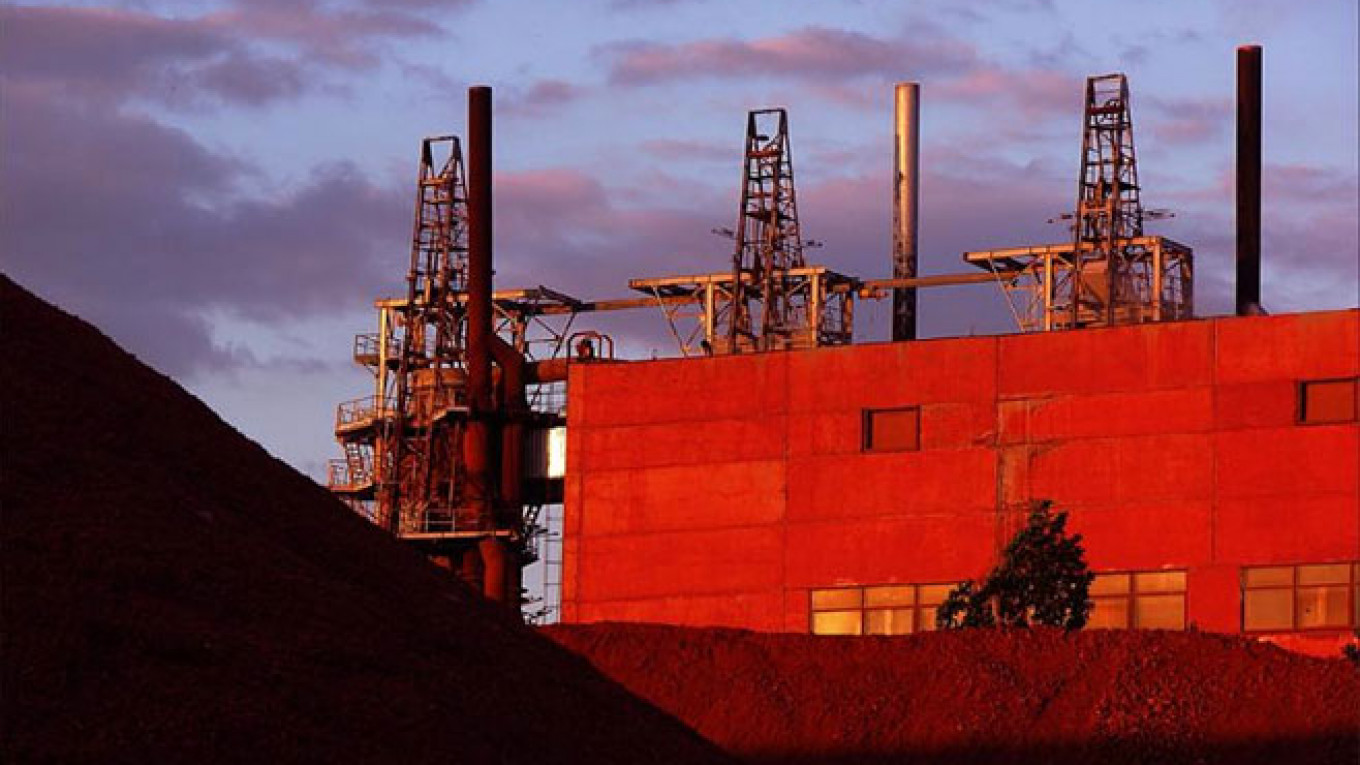Russian companies and banks are watching events in Ukraine anxiously because they stand to lose billions in investments and business in the former Soviet republic.
Russian banks are the biggest overseas lenders to Ukraine, accounting for 12 percent of the sector with about $28 billion of exposure, including Sberbank, VEB and VTB.
Companies with exposure are in the oil and gas sector, telecoms and metals and mining.
The mainly Russian-speaking eastern regions, which produce coal, metals, chemical products and combines for nuclear plants, are among the most heavily industrialized parts of Ukraine.
Here is an outline of some of the big Russian companies with interests in Ukraine:
Metals and Mining
Aluminum giant RusAl owns Nikolaev alumina plant in Ukraine, or Mykolayiv, as the city is called in Ukraine, its second largest alumina asset. It is functioning normally, according to the company. The company also owns Zaporozhye alumina and aluminum complex which suspended work several years ago due to low aluminum prices.
VSMPO Avisma, the world's largest titanium producer, owns a titanium alloy tubes producer — Vsmpo Titan Ukraine.
Evraz operates a steel mill in Ukraine's Dnipropetrovsk, sells its goods in Ukraine and ships them to Russia and the Middle East. Annual capacity is about 900,000 tons of pig iron, 820,000 tons of crude steel and 700,000 tons of rolled products.
Evraz, the biggest stake in which is owned by billionaire Roman Abramovich, also owns Sukha Balka iron ore project near Donetsk, with an annual capacity of 2.5 million tons of iron ore production. It ships to local plants as well as overseas.
Mechel operates a steel mill — Donetsk electro metallurgical plan, or DMZ — in Donetsk. Annual capacity is about 1 million tons of crude steel a year. It supplies steel products to more than 30 countries. Mechel group, owned by billionaire Igor Zyuzin, has been trying to sell the plant back to its previous owner, businessman Vadim Varshavsky.
Telecoms
No. 1 Russian cell phone provider MTS is the second-largest mobile operator by subscribers in Ukraine. It had 22.4 million subscribers in Ukraine at the end of September, 2013. MTS has 12 percent of EBITD — earnings before interest, tax, depreciation and amortization — coming from Ukraine according to a research note from VTB Capital, which estimates the sensitivity of MTS's 2014 EBITDA is 1 percent for a 10 percent hryvna, Ukraine's currency, devaluation.
VimpelCom's Ukrainian operations accounted for 8 percent of its third-quarter EBITDA, according to its latest earnings report. "Visibility over the Ukrainian economic outlook is limited at this point," VTB Capital analyst Ivan Kim wrote in a research report. "We note that Ukraine is much more important for VimpelCom as a source of cash flow vs. MTS."
An MTS spokesman said Ukraine business contributes about 10 percent to Group revenue and 12 percent to the Group OIBDA. Networks operate in standard mode.
Oil and Gas
Russia's largest oil company, Rosneft, could soon buy Ukraine's Odessa oil refinery, which has been secured by VTB because of the outstanding debts of the former owner, Kommersant newspaper said last week. Rosneft already controls Ukraine's second-largest Lisichansk refinery.
Russian mid-sized oil producer Tatneft has been involved in a legal dispute over ownership of Ukraine's Kremenchug oil refinery, or Ukrtatnafta, Ukraine's largest. The plant's former managers used armed police to oust managers friendly to Tatneft, citing a court order, in 2007.
Investment Firm
Russian investment group Summa, which owns half of Russian state grain trader United Grain Company, or UGC, plans to build a grain and container terminal in Ukraine's Mykolayiv region on the Black Sea when tensions ease, it said last week.
January 2014 Russian imports from Ukraine dropped 37 percent versus the period last year, to $698 million, according to the Russian Federal Customs Service, Vedomosti reported. Exports from Russia to Ukraine were at $2.65 billion for the month, about the same volume as for January 2013.
A Message from The Moscow Times:
Dear readers,
We are facing unprecedented challenges. Russia's Prosecutor General's Office has designated The Moscow Times as an "undesirable" organization, criminalizing our work and putting our staff at risk of prosecution. This follows our earlier unjust labeling as a "foreign agent."
These actions are direct attempts to silence independent journalism in Russia. The authorities claim our work "discredits the decisions of the Russian leadership." We see things differently: we strive to provide accurate, unbiased reporting on Russia.
We, the journalists of The Moscow Times, refuse to be silenced. But to continue our work, we need your help.
Your support, no matter how small, makes a world of difference. If you can, please support us monthly starting from just $2. It's quick to set up, and every contribution makes a significant impact.
By supporting The Moscow Times, you're defending open, independent journalism in the face of repression. Thank you for standing with us.
Remind me later.






